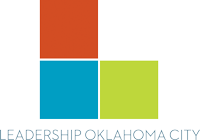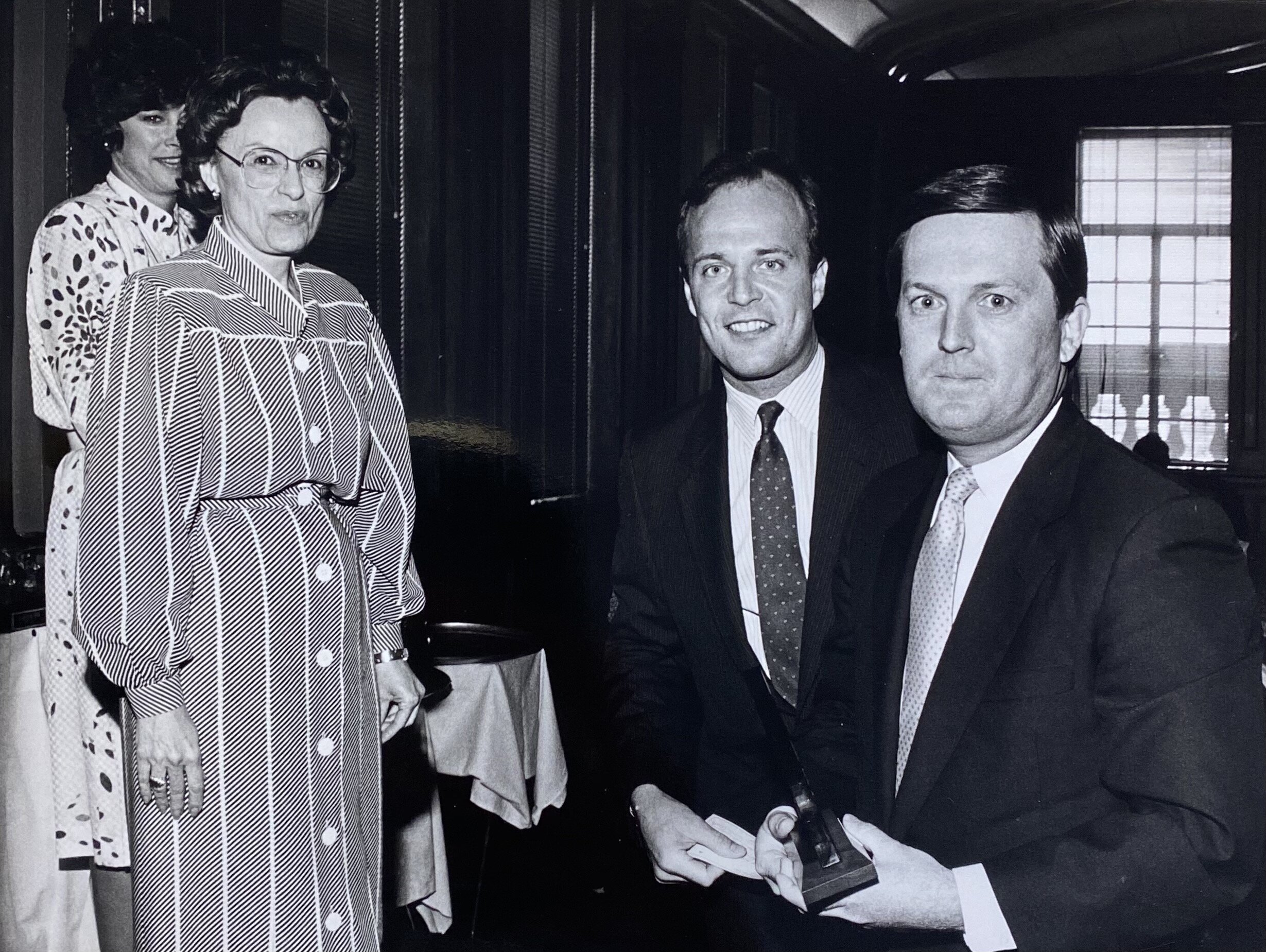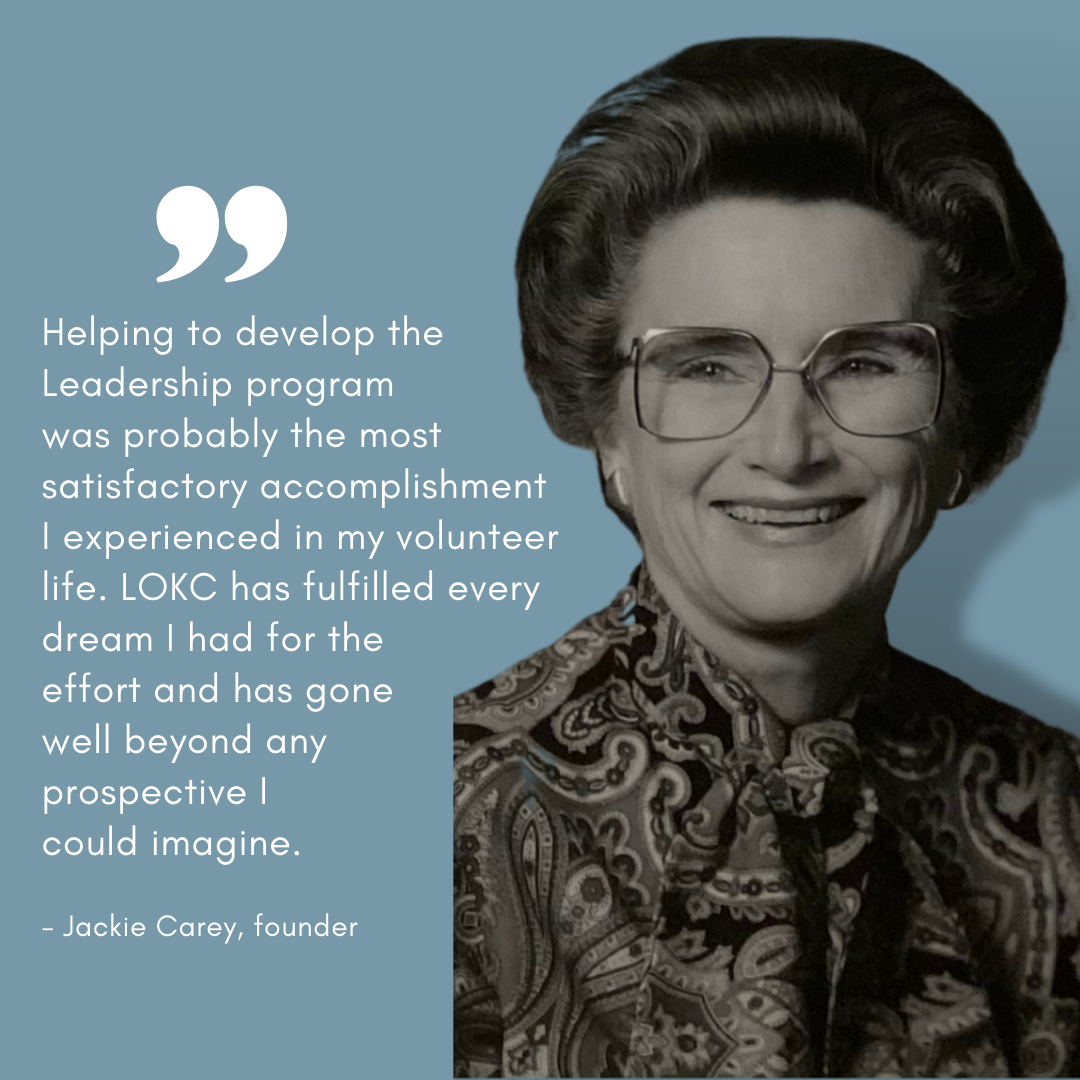40th Anniversary
A Year of Celebration Honoring LOKC’s 40th Anniversary
The 40th Anniversary is a celebration across the entire year starting in June 2021 and culminating with the Celebration of Leadership at graduation in May 2022.
The year of celebration involves everyone. We will be spotlighting members, reflecting on our history and milestones, and bringing people together for special events throughout the year.
This is an opportunity to reflect on the progress we have made together, look back at some of the obstacles we overcame, celebrate our diversity, and consider plans for our future.
READING THE ROOM, LAYING THE FOUNDATION
By Mary Walsh
(The late Jackie Carey, Virginia Austin Schubert*, Hershel Lamirand, Signature Program Class I, and Terri Cooper, Signature Class I, reflect on the launch of Leadership Oklahoma City)
In the late 1970s the Junior League of Oklahoma City joined with representatives from the United Way, the Kerr Foundation, the Oklahoma City Community Foundation, Allied Arts, the Arts Council of Oklahoma City, Price Waterhouse and Company and the Oklahoma City Chamber of Commerce (now the Greater Oklahoma City Chamber) to offer a series of one day community board training institutes geared to attract members of our local non-profit organizations.
A common belief grew out of these sessions (which some might call “reading the room”) that Oklahoma City needed something more: specifically, an extended training program to identify young people with leadership potential who would support and reinforce the existing leadership and, at the same time, build a network of communications and relationships among future leaders. According to Austin Schubert, “Leadership basics blended with community knowledge and volunteer skills. That was the mix of information we aimed to offer.”
The ultimate goal? Developing and maintaining a cadre of program alumni who were trained and willing to meet the expanding needs of the city’s future. Jackie Carey once stated, “I see our program as an effort to expand Oklahoma City’s comparatively narrow range of leadership opportunities.”
For the next two years, Carey and Austin Schubert gathered information from existing programs throughout the country, beginning with Dallas and Tulsa. Hershel Lamirand remembers, “Jackie and Virginia focused on the basic structure and later I was brought in to help add the meat to those basic bones of class sessions and topics.”
Beginning in 1981 and satisfied that they had enough information to continue, the group made their efforts official, calling themselves the Leadership Oklahoma City Steering Committee. Members now included representatives of the for-profit business, city government and higher education communities well as both the South Oklahoma City and Oklahoma City Chambers of Commerce and the non-profit world. Structural decisions, program planning and recruiting began in earnest.
Two keys for success gleaned from the aforementioned sources were especially valuable to the group at that time: (1) A program should be a free-standing non-profit corporation unrestricted by outside influence and (2) all recruiting efforts should draw candidates representing all diverse sectors of our community. The committee was keenly aware that the diversity of the first class would be the magnet that could draw in others, guaranteeing an on-going, successful program.
In due time 30 men and women were selected for the inaugural program, which began September 17, 1982. Terri Cooper, a member of that first class remembers, “When I arrived for our orientation retreat, a two -day event held at the Skirvin Hotel, I found I knew very few people, which turned out to be to my benefit. Forty years with Leadership has led me to seek broader horizons and to appreciate new friendships with people I would not otherwise have met.” She adds “We were a broad range of people with a common interest in leadership but with assorted ethnicities, ages and backgrounds from various areas of the city. Also, class members came from for-profit, non-profit, government and educational backgrounds.”
Those familiar with Leadership Oklahoma City will recognize that the subject matter of those first class sessions are much the same as today: Building camaraderie among the class members, focus on Oklahoma City, Oklahoma City’s cultural profile, education, metropolitan law enforcement, health, economic growth and development, volunteer leadership, and finally, the impact of demographics and key economic indicators and trends in our city.
Of this early, yet influential programming, Cooper remembers, “One of my first experiences was a brainstorming session where everyone was free to express ideas and opinions without fear of criticism. I realized that this empowered me to have a voice. A lesson that has stayed with me for 40 years.” She adds, “As a measure of our success, I find it unusual, and really kind of difficult, to meet people today in leadership positions in our community who do not have some form of contact with Leadership Oklahoma City.”
Of his involvement with Leadership Oklahoma City, Hershel Lamirand says, “I am honored to have been a part of these efforts. Unquestionably this organization makes a difference.”
*Portions of this article were drawn from an early 1980s speech by Virginia Austin Schubert to the Sertoma Club.








